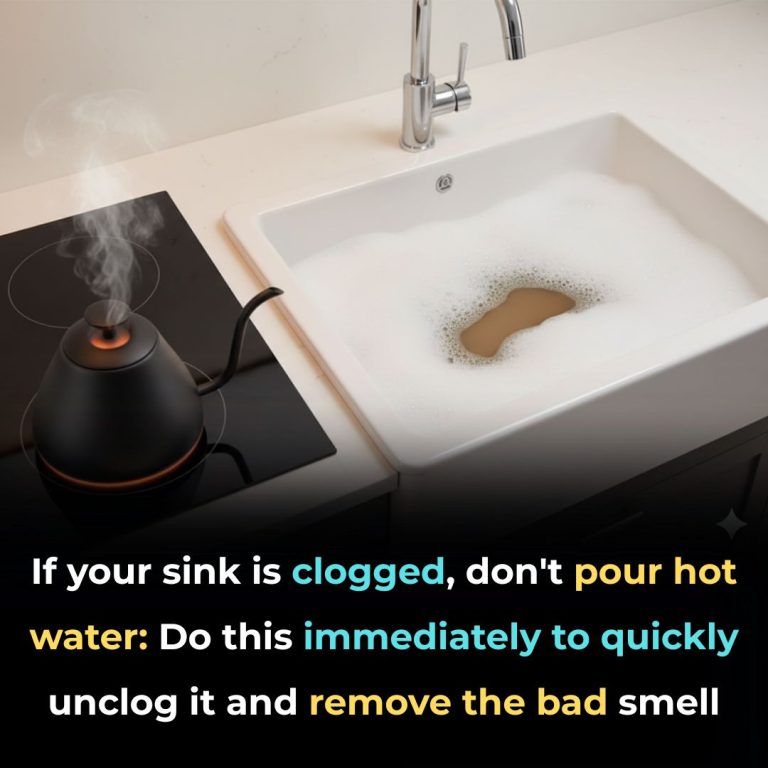ADVERTISEMENT
2. Try a Sink Plunger to Create Pressure
For stubborn clogs that aren’t caused by grease or oil, a basic sink plunger can be surprisingly effective. The suction and pressure can dislodge trapped food particles or tangled hair.
Best for:
-
Clogs caused by solid objects, like vegetable scraps, tissue, or hair clumps
How to do it effectively:
-
Make sure there’s some standing water in the sink
-
Create a tight seal over the drain
-
Pump the plunger vigorously 10–15 times
-
Remove the plunger and check for drainage
Note:
Plungers are less effective if the clog is due to grease or sticky residue, which often requires a chemical reaction to break down.
3. Use Baking Soda and Vinegar (or Citric Acid)
This natural cleaning combo is a classic DIY fix that works wonders for minor clogs and odor control—without the need for harsh chemicals.
How to do it:
-
-
Pour ½ cup of baking soda down the drain
-
-
Add ½ cup of white vinegar or citric acid
-
Let it fizz and bubble for 30–45 minutes
-
Rinse with warm (not boiling) water
Why it works:
The chemical reaction helps to break down gunk, grease, and organic buildup while also deodorizing the drain.
Extra Tip:
Repeat once a week to help prevent future clogs and keep your drains fresh-smelling.
4. Use Dish Detergent and Hot Water to Melt Grease
If the clog is caused by greasy residue from cooking, dish soap and hot water may be your best solution.
Why this method works:
Dish detergents contain surfactants and alkaline agents that dissolve grease and oils effectively.
Step-by-step:
-
Mix 1 part dish detergent with 3 parts hot water
-
Stir until fully blended
-
Slowly pour the mixture down the drain, aiming for the sides
-
Let it sit for 15–20 minutes
-
Flush with more hot water to clear the loosened buildup
Important:
Avoid using boiling water, especially in plastic pipes—it can cause warping or damage.
5. Use Chemical Drain Cleaners—Only as a Last Resort
Commercial drain cleaners can be extremely effective, but they’re also harsh on your pipes and the environment. Reserve this method only for severe clogs when nothing else works.
Before you begin:
-
Wear rubber gloves, a mask, and old clothes
-
Open windows or use a fan for ventilation
-
Never mix different drain cleaning products or combine with bleach or vinegar
-
Follow the product’s instructions exactly
Warning:
Overusing chemical cleaners can erode your pipes over time—especially older or PVC systems.
Bonus: Proactive Prevention Tips
Dealing with clogs is never fun—so why not prevent them in the first place?
Here are some smart habits to keep your drains running smoothly:
✅ Use a mesh strainer or drain screen to catch hair, food, and soap scum
✅ Never pour grease or oil down the drain—even a little can cause buildup over time
✅ Routinely flush your drains with hot (not boiling) water to help clear minor residue
✅ Scrape plates and pans into the trash before rinsing them in the sink
✅ Clean drain stoppers weekly to prevent buildup of gunk and debris
continued on next page
ADVERTISEMENT
